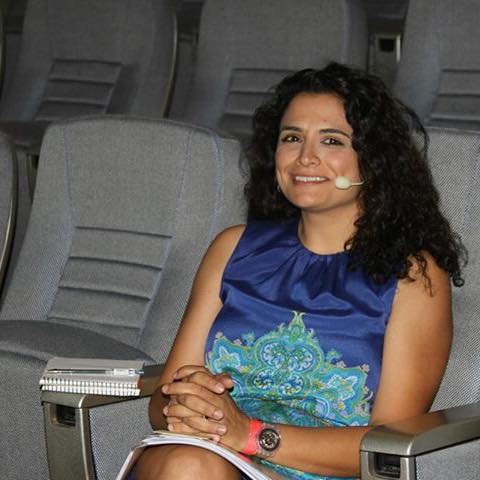
What is Peace (Salam) from a biblical perspective?

What is Peace (Salam) from a biblical perspective?
By Shadia Copty
Let’s imagine together that you are in a church on a Sunday and the sermon was good, your family and friends were present and you easily found a place to park your car that day. In short, it was a fun time. After church and while heading towards your home, you passed by a beggar, and your priest has just finished preaching about giving to the needy, so without any thinking, you take the coins from your pocket and give them to the beggar. Possibly, during the same day, and while you are at a crossroad, a kid selling gum approaches you, so you think a little this time, and remember the verse from 1 John 3:17, “If anyone has material possessions and sees a brother or sister in need but has no pity on them, how can the love of God be in that person?” So, you give him a piece of chocolate, because you think that if you gave him money, it might possibly be taken from him, and you continue on your way. It is possible that on your way home, you need to cross the checkpoint, and it could happen that on this day, the soldier is treating an old lady in a humiliating way. What does the Bible tell you to do in such case? What does the Bible tell you when you go to an interview for a job in a Jewish neighborhood, and everything is going well until the owner knows you are an Arab and refuses to hire you? What does the Bible says about such cases? As a Christian, you believe that the Bible has authority over all aspects of your life, and since the injustice or the discrimination that you are experiencing are part of your life, then how should you react?
Our understanding of justice is connected to our understanding of peace. justice is the mechanism to which we identify a situation to be wrong and seek immediate change. Peace is our point of comparison to what God intended a situation to be.
Peace
As a Christian, God has given me many blessings, and the greatest of these is that He carried my sins on the cross and gave me the privilege of being in His kingdom. Another blessing that He gave me is peace. The meaning of peace in the Bible goes back to completeness – it was completed. Jesus’ work on the cross fulfilled/completed His work through bringing us back to Him, and in His kingdom, peace will prevail.
We sing about this peace in our hymns:
“Your peace has surpassed our minds and it will never disappear.”
“Whatever the enemy will say, you fill our lives with peace.”
“Peace, peace for the people of the Lord everywhere.”
This peace is within us; no one or no situation can take it away from us. The people of the Lord have peace everywhere, even during tough times. I experience peace as I experience the rest of God’s attributes, such as justice, truth and love. Jesus is the Prince of Peace and as His followers, we become ambassadors of peace. What does that mean?
Let’s take a look at some verses that speak of this peace:
“Blessed are the peacemakers, for they will be called children of God” (Matthew 5:9).
In this context peace is not something that I hide in, but rather something I make. In the Sermon on the Mount, Jesus congratulates everyone who makes peace, thus He is trying to apply His peace outside Himself – with those around Him. Are we called children of God only if we make peace? What does it mean to make peace? Between whom is it? Friends? Believers? Does this include peace between Israelis and Palestinians? In John 1:12 the scripture says, “To them He gave the right to become children of God, to those who believe in His name.” It is written here that we are children of God, thus we make peace. Making peace is the result of being children of God, not the cause.
We love this verse: “You are the salt of the earth. But if the salt loses its saltiness, how can it be made salty again? It is no longer good for anything, except to be thrown out and trampled underfoot!” (Matthew 5:13). To be “salt,” I must understand what “unsalted” means. Have you ever eaten Kebab and it lacked salt, but when you added a little salt it made a great difference? All senses of taste have rebounded and became clear because of this sprinkle.
Another verse that we love to describe ourselves with is: “You are the light of the world. A town built on a hill cannot be hidden. Neither do people light a lamp and put it under a bowl. Instead they put it on its stand, and it gives light to everyone in the house. In the same way, let your light shine before others, that they may see your good deeds and glorify your Father in heaven” (Matthew 5: 14-16). To become light, we assume there is darkness. Have you ever had that experience when the electricity went off, and everything became dark, but at the moment you lit a candle, everything flashed? The light and salt that Jesus talked about are not the shiny crosses we wear, but are reflected in our actions and behaviors.
God gave us peace to share with others and not to keep for ourselves. Our work of peace is ‘not just’ an internal peace that is only for us. I should not be content with my own peace while people around me do not have any. We cannot hide the light, and food is not good food without salt. I want to feed everyone so they can also taste the Lord. We are all ambassadors for peace, and an ambassador represents his boss. Since I experience the peace of Christ, I want everyone to experience it. In the same way, as a Christian I speak against discrimination and occupation because they contradict my understanding of God’s peace. I give to the poor, the hungry, the one who does not have; not because I have to, but because Christ within me wants to give through me.


